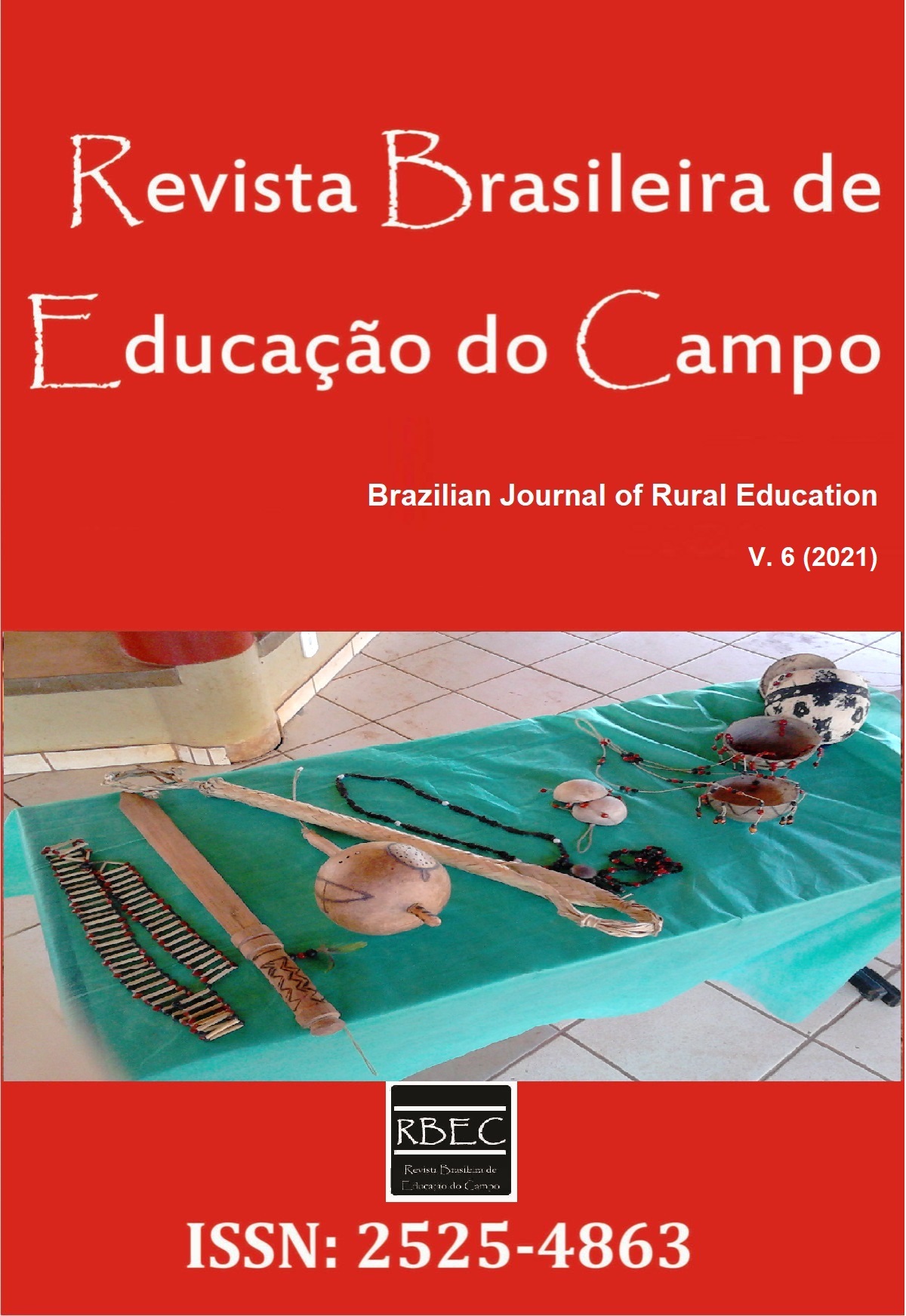The formative process: history, memory and path of LEDUCARR/UFRR graduates
DOI:
https://doi.org/10.20873/uft.rbec.e13004Abstract
ABSTRACT. The object of this study is the formative trajectory of graduates of the Degree Course in Rural Education at the Federal University of Roraima. The main objective was to identify the challenges of the teaching profession from the perspective of these subjects, based on their formative experience in that course. The research adopted as an instrument for data collection the interview (with 16 graduates), based on the oral history method (Thompson, 1998). The analysis, of a qualitative nature, was structured from the categories: the training path and the teaching profession. The voices of the graduates revealed the importance of this course as an implementation of public policies for the training, at a higher level, of field subjects, which was a dream for most of the survey respondents. In addition, they exposed the difficulties encountered in getting a place to work in rural schools. For most interviewees, the lack of recognition of the course by government entities affects the offer of places in selective and public examinations. Thus, this work aims to expand the debate on proposals for Rural Education.
Downloads
References
Arroyo, M. G. (1999). Educação básica e movimentos sociais. Articulação Nacional por uma Educação Básica do Campo. Brasília, DF: Coleção Por uma educação básica do campo, v. 2.
Caldart, R. S. (2000). Pedagogia do Movimento Sem Terra: escola é mais do que escola. Petrópolis: Editora Vozes.
Caldart, R. S. (2004). Por uma educação do campo: traços de uma identidade em construção. In Arroyo, M. G., Caldart, R. S., & Molina, M. C. (Orgs.). Por uma Educação do Campo (s./p.). Petrópolis: Vozes.
Delors, J. (2012). Prefácio. Delors, J. et al. Educação um tesouro a descobrir – Relatório para a Unesco da Comissão Internacional sobre Educação para o Século XXI. 7. ed. São Paulo: Cortez, 2012.
Edital de convocação nº 09 (29 de abril de 2009). Recuperado de: http://portal.mec.gov.br/dmdocuments/edital_procampo_20092.pdf.
Freire, P. (2013). Pedagogia da Autonomia: saberes necessários à prática educativa. 46. ed. São Paulo: Paz e Terra.
Fragoso, M. B. (2000). Pedagogia do Movimento Sem Terra: escola é mais do que escola (resenha). Rev. Bras. Educ. (15). https://doi.org/10.1590/S1413-24782000000300011
Minayo, M. C. S. (2012). Análise qualitativa: teoria, passos e fidedignidade. Ciência & Saúde Coletiva, 17(3), 621-626. https://doi.org/10.1590/S1413-81232012000300007
Silva, A. M. (2014). Educação do Campo: uma breve (re)construção Epistemológica. In Lima, E. S. L., & Silva, A, M. (Orgs.). Diálogos sobre Educação do Campo (s./p). 2. ed. Teresinha: EDUFPI.
Thompson, P. (1998). A voz do passado: História Oral. 2. edição. São Paulo: Paz e Terra.
Published
How to Cite
Issue
Section
License
Proposal for Copyright Notice Creative Commons
1. Policy Proposal to Open Access Journals
Authors who publish with this journal agree to the following terms:
A. Authors retain copyright and grant the journal right of first publication with the work simultaneously licensed under the Creative Commons Attribution License that allows sharing the work with recognition of its initial publication in this journal.
B. Authors are able to take on additional contracts separately, non-exclusive distribution of the version of the paper published in this journal (ex .: publish in institutional repository or as a book), with an acknowledgment of its initial publication in this journal.
C. Authors are permitted and encouraged to post their work online (eg .: in institutional repositories or on their website) at any point before or during the editorial process, as it can lead to productive exchanges, as well as increase the impact and the citation of published work (See the Effect of Open Access).















